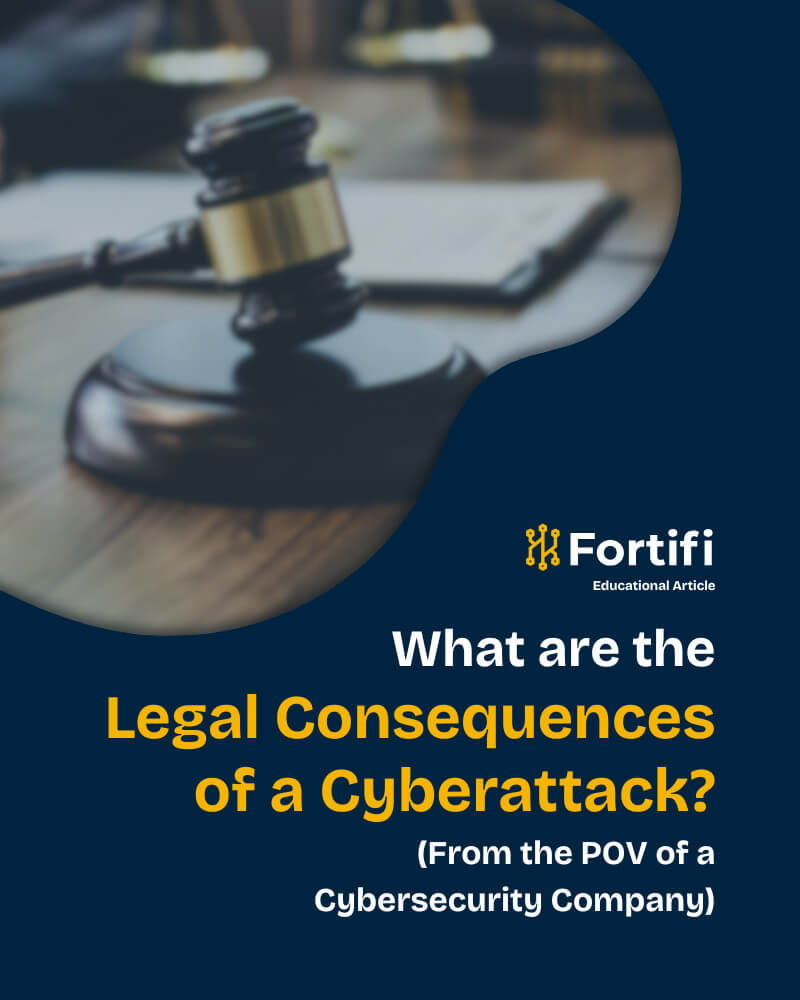Contents
Introduction
Imagine this.
It’s 9am on a Monday. You’re just about to dive into a fresh pot of coffee and your inbox is already screaming. Then the IT manager calls.
There’s been a breach.
Client data, confidential, sensitive data, might have been compromised. Panic sets in. The question everyone wants answered:
Are we liable for this?
Today’s blog will break that question down step by step, focusing on what legal and financial firms need to know about data breach liability. We’ll explore who’s responsible, what the law says, and how to protect your business from both cybercriminals and the courtroom.
Go ahead, grab that cuppa, cause this one’s important.
Why Liability Matters More Than Ever
Data is the lifeblood of legal and financial services. Whether it’s client contracts, investment portfolios, or pension data, you’re handling highly sensitive information every day.
Unfortunately, cybercriminals know this. In fact:
- 65% of UK Legal Firms were targeted by Cyberattacks in 2024.
- Financial services organisations are 300 times more likely than other companies to be targeted by a cyber attack.
So it’s no surprise that questions around liability are getting louder, and more urgent.
So… Are You Liable?
The short answer: Yes, you can be.
Under regulations like UK GDPR, the Data Protection Act 2018, and certain industry-specific mandates like FCA guidance, organisations are considered data controllers. That means you are responsible for the data you collect, process, and store, even if the breach wasn’t technically your fault.
Liability kicks in when:
- You failed to put appropriate security measures in place
- You didn’t notify affected parties or regulators in time
- You used a third party who wasn’t properly vetted
- You failed to train your staff on basic cybersecurity practices
- You didn’t follow your own policies and procedures
In other words: Negligence is liability’s best friend.
But What If It Was a Sophisticated Hack?
It doesn’t matter.
Courts and regulators look at preparedness, not perfection.
Think about it like this: If someone breaks into your office but the door was wide open, insurance might not cover you, and regulators won’t be sympathetic.
You’ll be asked:
- Did you have up-to-date firewalls, encryption, and MFA in place?
- Were you conducting regular penetration testing?
- Do you have an incident response plan?
- Was staff training documented and repeated?
Fail any of these? That’s when liability becomes a real risk, financially and reputationally.
What Does the Law Actually Say?
Here’s a quick breakdown of where the legal heat can come from:
📜 UK GDPR & Data Protection Act 2018
- You must ensure a level of security “appropriate to the risk.”
- You must report data breaches within 72 hours.
- Clients can sue for damages, including emotional distress, if their data is compromised.
🏛️ FCA Handbook (SYSC 13 & FG 16/5)
- Financial firms are expected to assess, monitor, and mitigate operational and cybersecurity risk.
- Breaches may trigger regulatory investigations and fines, particularly if client trust is eroded.
🤝 Contractual Obligations
-
If your contract with a client includes guarantees or SLAs around data security, failing to meet them could result in breach of contract claims.
Third Parties: Are You Still Liable?
Let’s say you use a third-party cloud provider, CRM, or IT support service. If they suffer the breach, surely they are liable?
Wrong.
As the data controller, you are still responsible. You can sue the third party after the fact, but your client will come for you first.
This is why third-party risk management is absolutely essential.
According to IBM, third-party involvement was a factor in 63% of breaches, adding an average of £270,000 to breach costs.
How to Limit Your Legal Exposure
You can’t eliminate all cyber risk — but you can reduce your liability. Here’s how:
1. Get Your Cyber Basics Right
✔ Regular penetration testing
✔ Strong encryption and access control
✔ MFA across all systems
✔ Endpoint protection and monitoring
2. Document Everything
Train staff regularly, and log it.
Run breach simulations, and record outcomes.
Update policies, and timestamp changes.
3. Vet Your Vendors
Do they follow ISO27001?
Have they had breaches in the past?
Can they support your incident response plan?
4. Insure Wisely
Cyber liability insurance can’t undo damage, but it can stop you from folding under the cost. Make sure your policy covers legal expenses, fines, and third-party claims.
5. Create a Bulletproof Response Plan
Know who to contact, how to contain damage, and how to communicate clearly with clients and regulators. A solid plan is often the difference between recovery and reputational ruin.
Final Thoughts: Liability Starts Before the Breach
If you’re asking “Are we liable after a cyber attack?”, it’s probably too late.
The real question should be:
Are we doing everything we can to prevent one?
Because regulators don’t expect perfection, but they do expect preparation.
So whether you’re a law firm storing thousands of case files or a financial adviser managing millions in client funds, remember:
Cybersecurity isn’t just about protecting data.
It’s about protecting trust.
And in today’s world, trust is your most valuable asset.
This blog is intended for general informational purposes only and does not constitute legal advice. For specific guidance on legal obligations, please consult a qualified solicitor or compliance expert.
